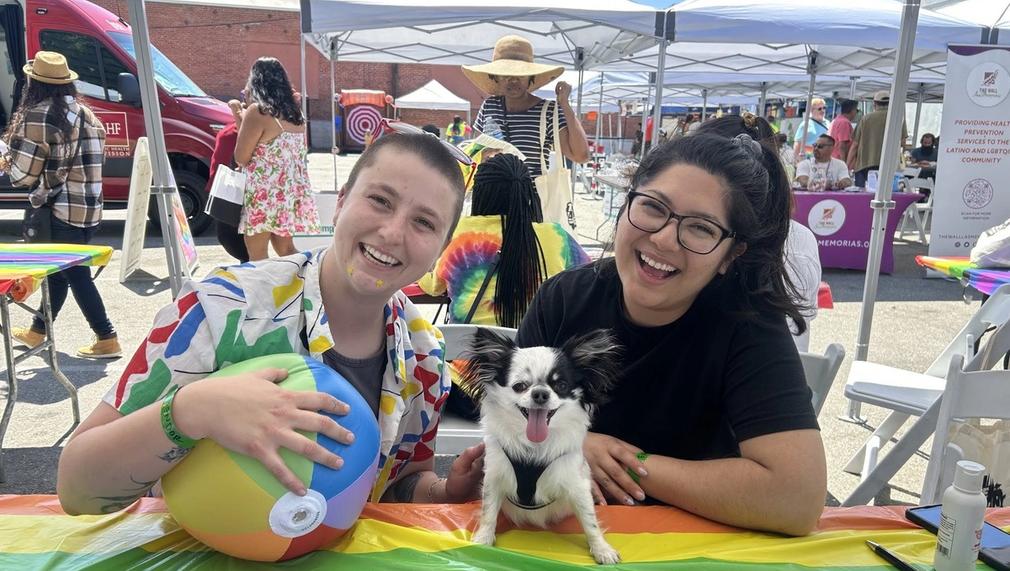Decolonizing Mental Health Access for Latinos
We aim to improve mental health care access for uninsured and underinsured Latino families in South LA by mobilizing Promotores, trusted community messengers, to increase access to care and educate on mental health and wellness. Our program addresses the critical need for effective mental health treatment options, ensuring high-quality care for underserved populations. With grant funds, we will build self-healing communities and improve overall mental health outcomes.

What is the primary issue area that your application will impact?
Mental health
In what stage of innovation is this project, program, or initiative?
Pilot or new project, program, or initiative (testing or implementing a new idea)
What is your understanding of the issue that you are seeking to address?
The issue our application addresses is mental health, specifically improving access to mental health services for Latinos. Conditions like serious mental illness and major depressive episodes are rising in our community, underscoring the urgent need for mental health services. Stigma, language barriers, and high rates of uninsured individuals further limit access to care. Despite California's expansion of Medi-Cal to undocumented immigrant adults, approximately 31% of eligible Latinos in LA County remain unenrolled. This gap is due to barriers like lack of awareness, difficulty navigating the enrollment process, and fears related to immigration status. We understand these issues on a personal and professional level. Our goal is to create a system where language, culture, identity, and abilities are integral to healing and recovery, not obstacles. By overcoming these barriers, we aim to improve mental health outcomes for our community.
Describe the project, program, or initiative this grant will support to address the issue.
We have designed a new outreach program that aims to improve health equity for underinsured Latinos in LA County. The goal is to establish a trusted group of promotores who will educate the community on mental health topics, reduce stigma, and connect members to health, mental health, and social services. Utilizing a relational model, we seek to enhance relationships with the uninsured/underinsured and address treatment barriers that sustain inequities in Latino care.
This Promotores cohort will receive specialized training in mental health, reaching out to individuals and families struggling with severe mental illness. They will guide them to free or low-cost mental health services provided by a bilingual, Spanish-speaking multidisciplinary team. Promotores will offer information on healthcare programs, resources for legal residency and citizenship, and supportive services addressing social determinants of health. Through 12 full-day popular education sessions, Promotores will learn about trauma-based disorders, trauma-informed approaches, barriers to care, and how to intervene, including actively supporting clients to attend their first mental health appointments.
Promotores with lived experience who become peer specialists will be valuable members of the multidisciplinary treatment team, ensuring whole-person and inclusive care by providing initial mental health screenings and participating in weekly case consults to address interdisciplinary treatment plans.
Describe how Los Angeles County will be different if your work is successful.
If this grant is successful, Los Angeles County will see a transformative shift in mental health care for uninsured and underinsured Latinos. Our vision is to empower community members by training them as Promotores, who will lead in health equity. These Promotores will eliminate wait times and improve access to quality bilingual care.
By building a network of peer specialists and Promotores, we will foster self-healing communities where individuals actively improve their own healthcare and that of their families and neighbors. This will reduce stigma, increase mental health service use, and decrease untreated conditions.
Long-term, we aim to scale the program to reach more areas, with each trained Promotor influencing multiple people, creating an expanding impact. Success will lead to significant improvements in lives, fostering a healthier, more resilient Latino community in Los Angeles County.
What evidence do you have that this project, program, or initiative is or will be successful, and how will you define and measure success?
To measure our program's success, we will use various evaluation methods. Quantitative measures include tracking the number of individuals served and community education presentations by the Promotores, aiming for a resulting 20% increase in Medi-Cal enrollment. We will monitor and track the number of Promotores completing the program and becoming peer specialists, targeting 75% completion and 50% transition.
Bi-annual surveys will gather qualitative data from participants after interactions with mental health providers to assess issues like mistreatment, misdiagnosis, and inappropriate care. To ensure program fidelity, we will track outreach events (50 annually), training session completion rates, and adherence to protocols.
Success will be measured by positive impacts on well-being, such as improved treatment outcomes, reduced disparities, increased knowledge, and enhanced self-efficacy. Survey results will be reviewed quarterly to adjust strategies for continuous improvement.
Approximately how many people will be impacted by this project, program, or initiative?
Direct Impact: 2,400.0
Indirect Impact: 9,600.0